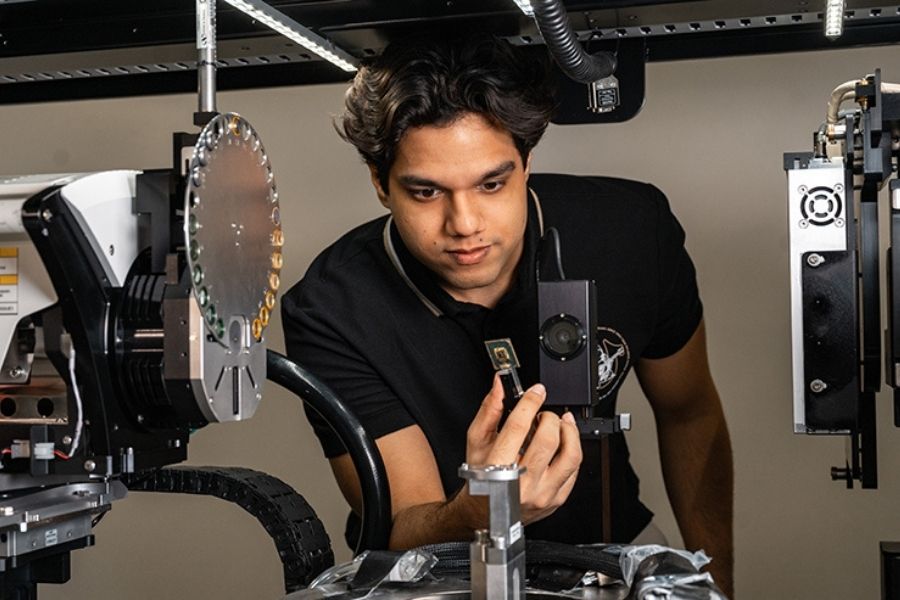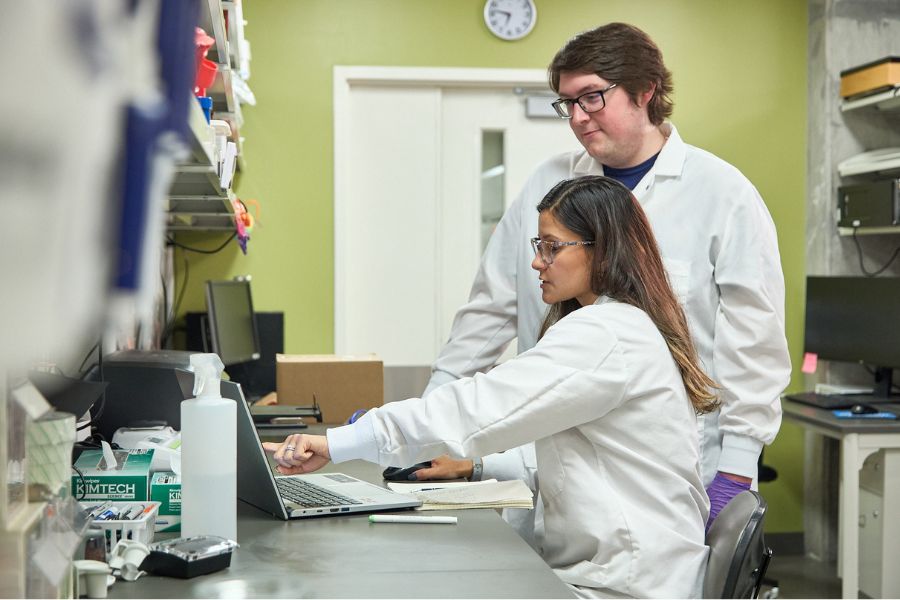Engineering Undergraduate Research Office (EURO)
Learn MoreSummer Undergraduate Research (SURF)
Learn MoreINSPIRE Research Institute for Pre-College Engineering
Learn MoreNeil Armstrong Distinguished Visiting Professors
Learn MorePostdoctoral Scholars & Fellowships
Learn MoreSmart Crossroads Research Consortium
Learn MoreGrid of Tomorrow Consortium
Learn More
Engenuity Boilermaker Engineering Podcast
The "Engenuity" podcast features some of the latest inspiring and innovative stories from Purdue Engineering — from faculty, students, staff and alumni — as we progress toward our Vision 2030: The Most Consequential Engineering College in the Nation.
Research News

NEWS
Cutting-edge imaging, AI research by MSE's Chawla seeks out minuscule defects in chips
October 07, 2025

NEWS
IE's Wu aims to personalize nutrition through digital health
September 22, 2025

NEWS
Purdue University emerges as America's leading institution in manufacturing and supply chain
September 17, 2025
